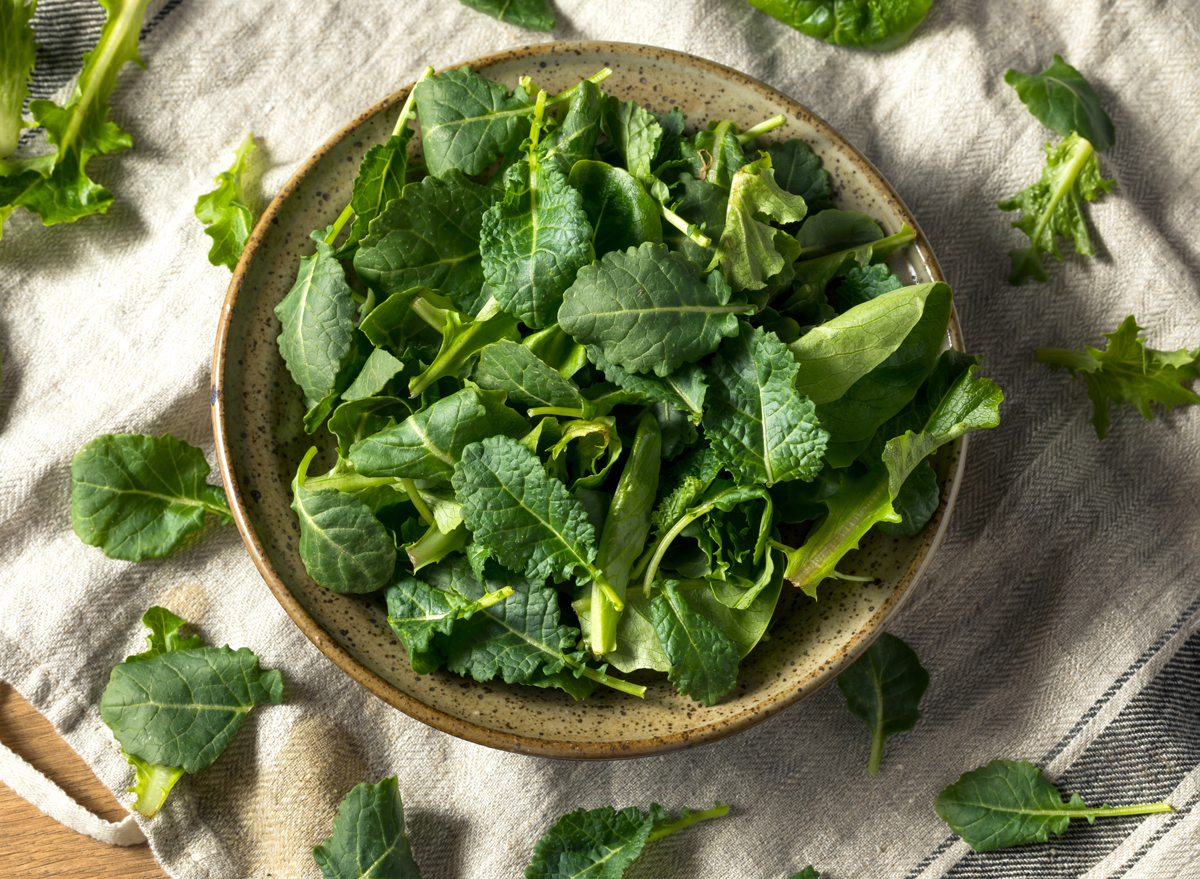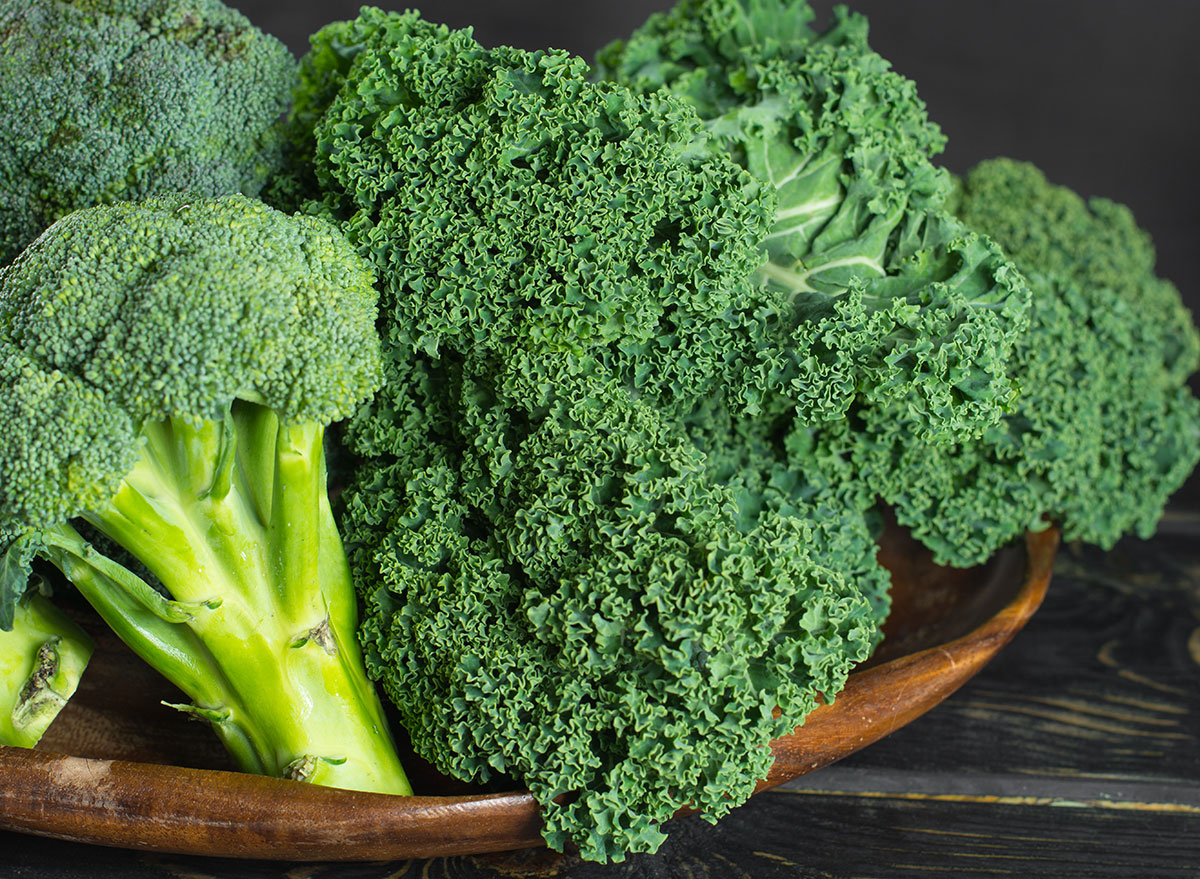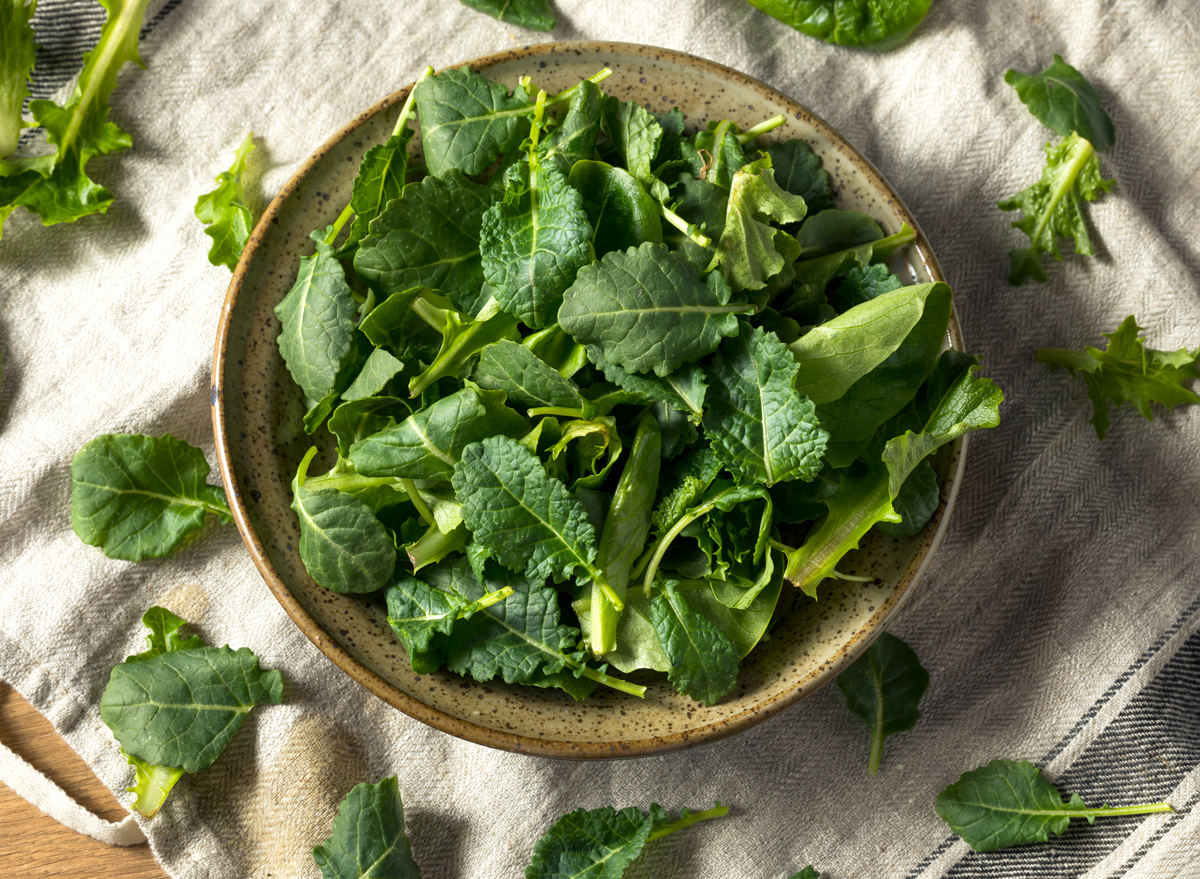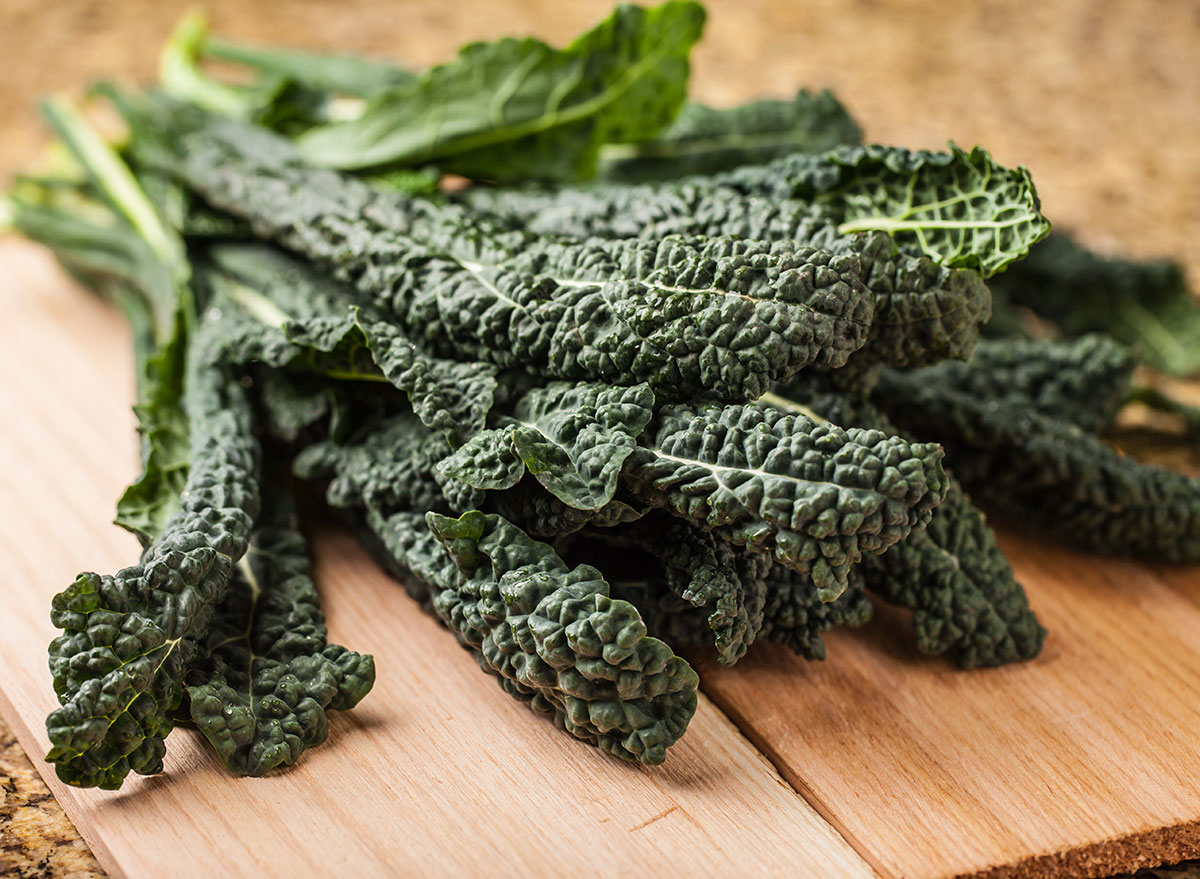Secret Side Effects of Eating Leafy Greens, Says Science

Whether you're enjoying them in a salad, tossing them on your sandwich, or scrambling them into your eggs in the morning, leafy greens are a great way to add flavor and texture to practically any food without loading it down with calories and fat.
Better yet, these delicious dietary staples have a long list of health benefits in every bite. Read on to discover some of the many amazing health benefits you can enjoy when you eat leafy greens, according to science. And for some more genius additions to your diet, check out The 7 Healthiest Foods to Eat Right Now.
Leafy greens may reduce your heart disease risk.

Whether you have a family history of heart disease or just want to cut your risk of the number one killer in America, leafy greens are a great way to lower your heart disease risk.
According to a 2021 study published in the European Journal of Epidemiology, eating just one cup of nitrate-rich leafy greens a day was associated with significantly reduced heart disease risk among a 50,000-person study population observed over a 23-year study period. For more ways to protect your heart, check out The Best Foods That Can Help Lower Your Risk of Heart Disease.
Leafy greens may lower your blood pressure.

Approximately 45% of Americans have hypertension, which can increase your risk of everything from heart attack to stroke, but increasing your intake of leafy greens can help.
In the same European Journal of Epidemiology study, researchers also found that study subjects who consumed the highest amounts of nitrate-rich leafy greens also had significantly lower systolic blood pressure than those who ate fewer of this type of vegetable.
Leafy greens may lower your cholesterol.

If your cholesterol is higher than you'd like it to be, making leafy greens a dietary priority may be able to help.
According to a 2008 study published in Biomedical and Environmental Science, among a group of 32 men with high cholesterol, drinking 150 milliliters of kale juice over a 12-week period helped significantly reduce their LDL cholesterol levels.
Leafy greens may slow your rate of cognitive decline.

Want to keep your brain sharp as a tack as you age? Try making leafy greens a bigger part of your diet starting now. According to a 2018 study published in Neurology, among a group of 960 participants in the Memory and Aging Project studied for an average of 4.7 years, those who consumed approximately one serving of leafy greens per day had a lower rate of cognitive decline. For more ways to boost your brainpower, check out the Best Supplements For Your Brain, According to Dietitians.
Leafy greens may lower your risk of lung cancer.

Approximately 235,760 new cases of lung cancer will be diagnosed in the U.S., and 131,880 people are likely to die from the disease in the U.S. this year.
However, a diet rich in leafy greens may have a protective effect against this devastating disease, research suggests. A 2014 study published in Nutrition and Cancer found that, in observing 371 individuals with lung cancer and 496 individuals without lung cancer in two Spanish hospitals between 2004 and 2008, those who frequently consumed leafy greens were less likely to have developed the disease.
If you want to play it safe, check out the 50 Worst Foods to Never Eat if Cancer Runs in Your Family, and for the latest healthy eating news delivered to your inbox, sign up for our newsletter!
Read this next:








